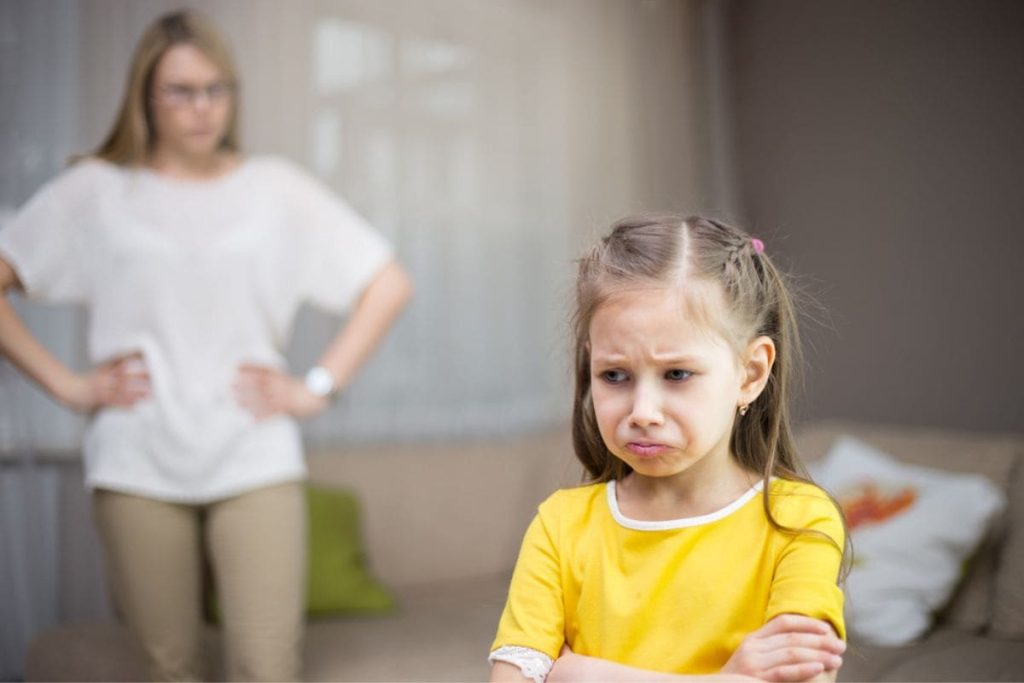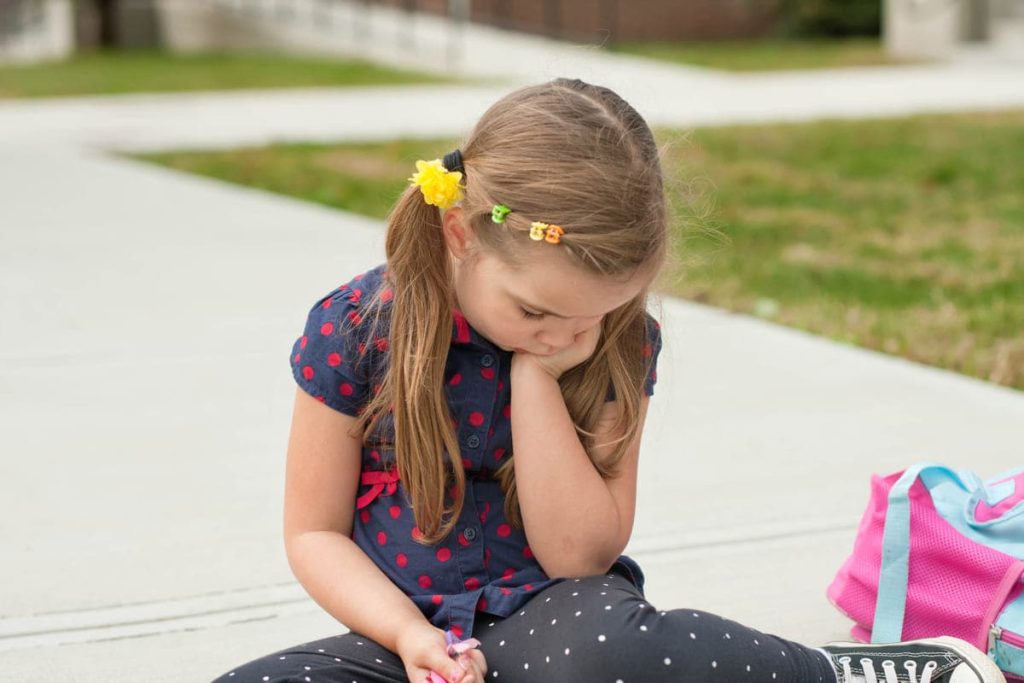Imagine growing up in an environment where your every move is monitored, and you’re expected to follow strict rules without questioning them. Your parents’ expectations for aggressive behavior are sky-high, and any deviation from their rules is met with harsh punishment. This experience is all too familiar for children raised with authoritarian parenting, leading many to ask why authoritarian parenting is bad.
Key Takeaways:
- Authoritarian parenting has long-term negative effects on a child’s emotional, behavioral and cognitive development.
- Cultural norms and socioeconomic factors can influence the impacts of authoritarian parenting, necessitating evaluation to provide effective support.
- Alternatives such as authoritative and permissive parenting offer more balanced environments for children’s growth.
Authoritarian parenting, characterized by strict obedience and inflexible expectations, can have long-lasting negative effects on a child’s development.
The Dark Side of Authoritarian Parenting

Authoritarian parenting, a style of parenting often adopted by an authoritarian parent, demands unquestioning obedience and adherence to strict rules, often without explanation or flexibility. Authoritarian parents tend to adopt this authoritarian parenting style due to their personality traits, attachment styles, or even their own upbringing. However, this inflexible parenting style may result in emotional, behavioral, and cognitive problems in children, detrimentally affecting their holistic development.
The repercussions of authoritarian parenting can be severe and enduring, leading to defiance, diminished self-esteem, and challenges in controlling emotions and independent thinking in children raised in such environments. These problems can persist into adulthood, affecting relationships, mental health, and life satisfaction.
Emotional Struggles
One of the most significant negative effects of authoritarian parenting is the toll it takes on a child’s emotional wellbeing. Children raised in authoritarian households often experience anxiety, depression, and low self-esteem due to the lack of emotional support from their parents.
In fact, research has demonstrated that children of authoritarian parents are more likely to suffer from emotional troubles than those raised by other parenting styles. This deficit in emotional support and empathy can negatively affect a child’s capacity to cultivate healthy relationships and manage stress and life’s hurdles throughout their lives.
Behavioral Issues
Authoritarian parenting can also intensify behavioral problems in children. Strict rules, harsh discipline, and lack of emotional support permissive parents can lead to a heightened risk of bullying involvement. The demanding and controlling nature of this parenting style can result in a lack of trust and unwillingness to negotiate with the child, which can further contribute to negative outcomes.
Specific behavioral issues associated with authoritarian parenting include:
- Decreased self-esteem
- Impaired academic performance
- Lack of emotional regulation and coping skills
- Externalizing behavior (such as aggression)
- Reliance on parents
- Submissiveness
- Social awkwardness
- Lack of self-assurance
These issues can have a long-lasting impact on a child’s development and overall well-being, so child and family studies focusing on parenting dimensions of child behavior are essential in understanding and addressing these challenges.
Hindered Critical Thinking
Authoritarian parenting can also impair a child’s critical thinking and problem-solving abilities. The absence of autonomy and exploration in an authoritarian household may impede a child’s innate ability to think critically, make decisions, and solve problems independently.
This lack of autonomy in early childhood can have lasting effects on an individual’s problem-solving skills and decision-making abilities as they grow into adulthood. Without the opportunity to develop these skills, adults who were raised in authoritarian households may struggle to manage complex problems autonomously and may lack the confidence to make important decisions in their lives.
The Lasting Impact of Authoritarian Parenting

The negative consequences of authoritarian parenting do not simply vanish as children grow older; they often persist into adulthood. The long-lasting effects on mental health, relationships, and overall life satisfaction can be significant and challenging to overcome.
Recognizing that the experiences of children reared with authoritarian parenting bear long-term consequences on their lives and development is significant. As the enduring effects of this parenting style become apparent, the need to understand and address these issues for promoting healthy development and improved life satisfaction is evident.
Difficulty Forming Healthy Relationships
One of the most significant long-term effects of authoritarian parenting is the difficulty that individuals may face in forming and maintaining healthy relationships. Emotional withdrawal and difficulty in expressing emotions, both common in those raised by authoritarian parents, can lead to challenges in establishing secure, fulfilling connections with others.
Moreover, the lack of trust, intimacy, and communication in relationships can be detrimental to an individual’s overall happiness and life satisfaction. The emotional scars left by authoritarian parenting can have a profound impact on a person’s ability to build and sustain meaningful relationships throughout their lives.
Mental Health Challenges
The long-term mental health challenges associated with authoritarian parenting are also significant. Children raised in authoritarian households often experience anxiety, depression, and other mental health issues that can persist into adulthood.
These challenges can have a detrimental impact on an individual’s overall wellbeing, affecting their relationships, career, and life satisfaction. It’s important to comprehend and tackle the mental health repercussions of authoritarian parenting to encourage healthier development and improved mental health outcomes for those impacted by authoritarian discipline.
Lower Life Satisfaction
The negative effects of authoritarian parenting on child psychology can also result in lower life satisfaction in adulthood. The long-term consequences of this parenting style on mental health, relationships, and personal development can leave individuals feeling unfulfilled and unhappy with their lives.
Recognizing the enduring effect of authoritarian parenting on an individual’s life satisfaction and taking measures to address these concerns is paramount for promoting healthier development and overall contentment.
Cultural Considerations and Authoritarian Parenting

Cultural and socioeconomic factors can play a significant role in the impact of authoritarian parenting. These factors can influence the prevalence of this parenting and attachment style and the severity of its adverse effects on children.
While examining the intricate relationship between authoritarian parenting and cultural and socioeconomic factors, acknowledging the need to consider these aspects when evaluating the repercussions of this parenting style on a child’s behavior and development is necessary.
Cultural Norms and Expectations
Cultural norms and expectations can affect the intensity of the negative outcomes associated with authoritarian parenting. In some cultures, authoritarian parenting may be more commonplace and accepted, while in others, it may be less prevalent and seen as more harmful.
Understanding the role of cultural norms and expectations in the manifestation of authoritarian parenting is crucial for evaluating its impact on child development and providing appropriate support and intervention strategies for families affected by this parenting style.
Socioeconomic Factors
Living in unsafe neighborhoods, experiencing financial stress, and having limited access to resources can contribute to parents adopting authoritarian parenting styles. The stressors associated with lower socioeconomic status can exacerbate the controlling and strict nature of authoritarian, parenting practices, which can, in turn, negatively affect children’s development.
Acknowledging the impact of socioeconomic influences on authoritarian parenting is important for comprehending its effect on children and offering suitable support and resources for families grappling with these challenges.
Alternatives to Authoritarian Parenting

While authoritarian parenting can have lasting negative effects on children’s behavior, there are alternative parenting styles that promote healthier child development. Authoritative and permissive parenting styles offer more balanced and nurturing approaches that can lead to more confident, responsible, and emotionally healthy children.
With a comprehensive understanding of these alternative parenting styles and their benefits, parents can make knowledgeable choices about their parenting approach, fostering more supportive and nurturing environments for their children.
Authoritative Parenting
Authoritative parenting, which can also be referred to as authoritative parental control:
- Balances high expectations with emotional support
- Provides a nurturing environment for children to grow and thrive
- Encourages autonomy and self-sufficiency
- Allows children to develop confidence and responsibility
Studies have shown that children raised by authoritative parents are more likely to be competent, content, and prosperous. Parents can promote healthier development and improved outcomes for their children by incorporating elements of authoritative parenting.
Permissive Parenting
Permissive parenting allows for more freedom and exploration, fostering creativity and independence in children. Although this parenting style may have some drawbacks, such as a lack of clear boundaries and expectations, it can still contribute positively to a child’s development.
Parents can foster a more relaxed and nurturing environment for their children by incorporating elements of permissive parenting, thereby allowing them to explore and cultivate their unique talents and passions, as parents expect kids to grow and develop in a healthy manner.
Transforming Your Parenting Style
If you recognize that your perceived parenting style leans towards authoritarian and you want to make a change, there are resources available to help you transform your approach. Seeking professional help and incorporating elements of healthier parenting styles, such as authoritative or permissive parenting, can lead to improved outcomes for your children.
Taking measures to adapt your parenting style and adopting a more balanced and nurturing approach can help foster a more supportive environment for your children, promoting their overall wellbeing and contentment.
Real-Life Examples of Authoritarian Parenting and Its Consequences
To illustrate the negative consequences of authoritarian parenting, consider the following real-life authoritarian parenting examples: Parents who insist on strict obedience from their children without allowing for discussion or flexibility, or those who enforce strict rules and have an uncompromising approach to discipline. These examples highlight the impact that authoritarian and different parenting styles can have on a child’s development and overall wellbeing.
Even some prominent individuals, like Arnold Schwarzenegger, have spoken candidly about their experiences with authoritarian parenting and the effect it had on their children. These real-life accounts act as potent reminders of the possible repercussions of this parenting style and the necessity of seeking healthier alternatives.
Wrapping Up – Why Authoritarian Parenting Is Bad
In conclusion, authoritarian parenting can have lasting negative effects on children’s development, mental health, and overall life satisfaction. Cultural and socioeconomic factors can influence the impact of this parenting style, making it essential to consider these factors when evaluating its effects.
By understanding the potential consequences of authoritarian parenting and embracing alternative styles, such as authoritative and permissive parenting, parents can create more supportive and nurturing environments for their children. In doing so, they can promote healthier development, improved mental health, academic achievement, and greater life satisfaction for their children as they grow into adulthood.
Frequently Asked Questions
What is the most damaging parenting style?
Neglectful parenting is the most damaging parenting style, as it offers very little care and engagement to children and promotes leaving them to fend for themselves. This results in lower-quality parent-child relationships and the worst developmental outcomes.
How damaging is authoritarian parenting?
Authoritarian parenting can have long-lasting adverse effects on a child’s health, self-esteem, psychological maturity, and even mental illness. It is associated with low social confidence, poor decision-making skills, and depression or anxiety. Parents should try to take a more positive parenting approach to support their children’s emotional needs best.
Why authoritarian parenting does not work?
Authoritarian parenting is linked to long-term mental health issues for children, such as low self-esteem, trouble managing emotions, and difficulty with independent thinking. It does not protect kids, encourages independence, and fails to provide an environment that allows children to think for themselves.
What are the negatives of authoritative parenting?
Authoritative parenting involves setting high expectations, which can make children feel overly anxious or perfectionistic in pursuing these standards. It also creates a risk of developing perfectionistic tendencies and difficulty accepting failure or mistakes, resulting in undue stress and pressure.
What are two examples of an authoritarian parent?
Authoritarian parents are those who strongly agree with statements from authority figures such as “children should be seen and not heard”, or “children should obey their parents without question”. Such parents often have rigid rules and punishments in place for their children, and limited communication between parent and child.






